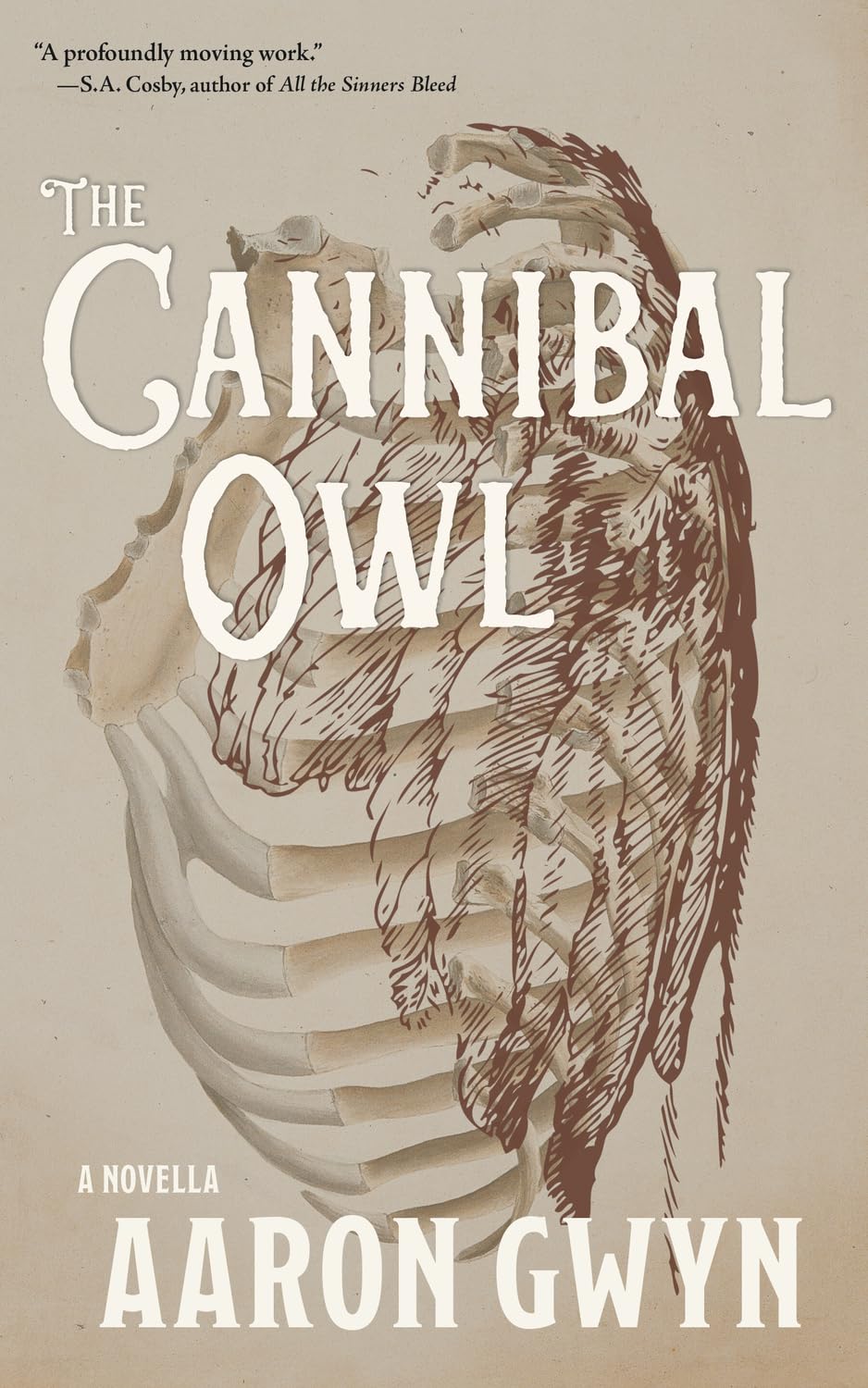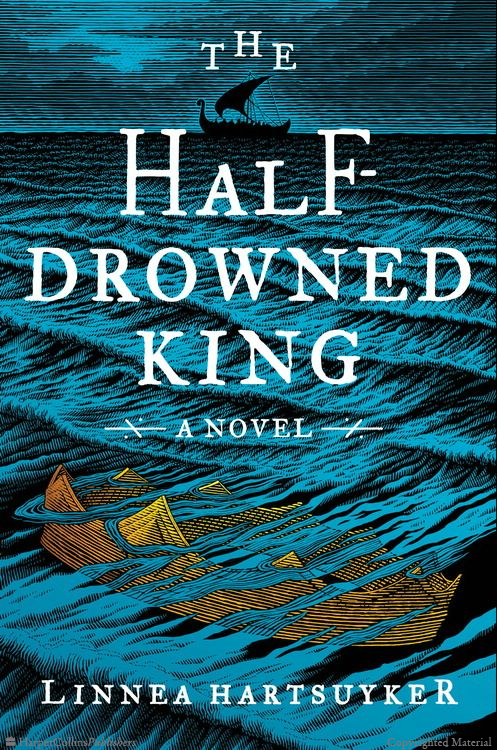The Cannibal Owl: A Novella
- By Aaron Gwyn
- Belle Point Press
- 80 pp.
- Reviewed by Holly Smith
- January 23, 2025
An orphan finds succor and sorrow among the Comanche in this lean, hypnotic tale.

Reading a good novella can feel like overhearing an unexpectedly powerful snippet of conversation: It flies past quickly, but you find yourself still turning it over in your mind days or even weeks later. Aaron Gwyn’s The Cannibal Owl is a good novella. Set in early 1800s Texas — and based loosely on the childhood experience of the real-life Levi English — the story’s brevity belies its depth. This one is going to stay with you.
“His mother had died of milk-sick the previous year,” begins the book’s second paragraph. “To Levi, her passing was like the passing of the moon: she was gleaming; she was gone.” Three pages later, Levi’s father is gone, too, and the boy, not quite 8, is living with his vicious uncle. “You never knew why he’d decided to make you bleed. The man is sad, he beats you. The man is mad, he beats you.”
At 11, Levi runs. Though physically small, he has the skills to survive on his own but not the heart. Very soon, loneliness compels him to seek others. Disgusted by his own people — from his kin to the whip-wielding overseer he spies herding a group of enslaved Black men — Levi wanders into a Comanche camp. “Nermernuh, they call themselves. The People.”
Flung to the ground and stripped naked within seconds, the boy watches as “the man with the calm voice stepped into view.” He is Two Wolf, the band’s chieftain, and he extends a hand to Levi. “The People watched. It seemed to Levi something important was being decided and the wrong move on his part would result in limitless suffering.”
But he doesn’t suffer. Not yet. Instead, the boy is helped up, dressed, and soon finds himself sharing a tipi with Two Wolf’s father-in-law, Poe-paya, a once-mighty warrior who goes by the name Toko and spends his old age crafting bows for a new generation of fighters. At Poe-paya’s side and under his protection, Levi listens to the old stories, becomes fluent in the language of the People, and fails to recognize that not everyone — including Turns In Sunlight, the wartime chief suspicious of white men’s sons — wishes him well:
“So even during story time, Poe-paya was watchful. Levi was watched by the other children as well. They were never hostile. They were merely curious, as if Levi was an animal they had taken for a pet, even though they weren’t supposed to. You kept an eye on such a beast. If something went awry, it would be your responsibility to put him down.”
Years pass in a handful of pages, but the story doesn’t feel rushed, only relentless. Levi grows into an able hunter under the alert eye of Poe-paya and, increasingly, in the company of Poe-paya’s daughter, Morning Star, one of Two Wolf’s wives. When Levi is gravely wounded while felling a buffalo, it is she who nurses him. As his feelings for her grow, so, too, does the ire between Two Wolf and Turns In Sunlight. While Two Wolf was away on the same buffalo hunt, Morning Star reveals, his other wife visited Turns In Sunlight’s lodge on three nights:
What will happen?
I’m not certain. I fear it will be bad.
Does Toko know? Levi whispered.
Toko knows one thing only, Poe-paya said, and Levi turned to see the old man staring at him. Young people talk too much: that is what causes bad things to happen. Young people ought to sleep when it is dark and work when the sun is shining. This is what Toko knows.
Of course, young people do talk. And young warriors make war. When Turns In Sunlight rejects Two Wolf’s attempt to preserve everyone’s honor — an insult atop an insult — Two Wolf smashes a rock into Turns In Sunlight’s skull. The latter recovers physically, but something has shifted. The vendetta kindled by Two Wolf’s act eventually becomes an inferno. But even as it threatens to consume everything in its path, larger peril looms. Poe-paya, now ailing, tries to warn Levi that worse is coming:
We have begun to clash with men of your race. Messengers from other bands say we are at war. Some claim we have been at war for years. Your people have not yet discovered how to hunt us, but there are men who are learning…
I haven’t heard these lies, Levi said.
They are true, said Poe-paya. Take my daughter and flee. If Turns In Sunlight rises up, she will be killed along with her husband. If he does not rise, these taibo will kill everyone regardless. Take her and go back to your people…Make this promise to me now.
Levi makes the promise, but whether he keeps it is for readers to discover — and to ponder. I finished this novella in an hour or so, but it still hasn’t finished with me.
Holly Smith is editor-in-chief of the Independent. If you ever ask her about another transcendent Western, Philipp Meyer’s The Son, best settle in. You’ll be there a while.

